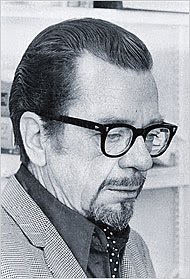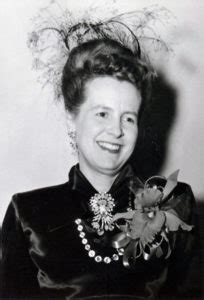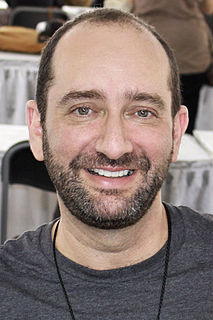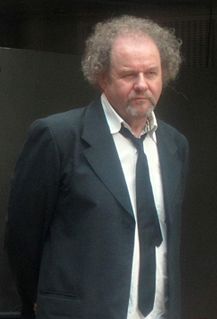A Quote by John Edward Williams
The love of literature, of language, of the mystery of the mind and heart showing themselves in the minute, strange, and unexpected combinations of letters and words, in the blackest and coldest print—the love which he had hidden as if it were illicit and dangerous, he began to display, tentatively at first, and then boldly, and then proudly.
Related Quotes
Love is like magic and it always will be. For love still remains life's sweet mystery! Love works in ways that are wondrous and strange and there's nothing in life that love cannot change! Love can transform the most commonplace into beauty and splendor and sweetness and grace. Love is unselfish, understanding and kind, for it sees with its heart and not with its mind! Love is the answer that everyone seeks... Love is the language, that every heart speaks. Love can't be bought, it is priceless and free, love, like pure magic, is life's sweet mystery!
The Greeks were smarter than us, and they had different words for different kinds of love. There's storge, which is family love. That's not us. There's eros, which is sexual love. There's philia, which is brotherly love. And then there's the highest form. Agape.” He pronounced it “aga-pay.” “That's transcendental love, like when you place the other person above yourself.
Linda was nine then, as I was, but we were in love...it had all the shadings and complexities of mature adult love and maybe more, because there were not yet words for it, and because it was not yet fixed to comparisons or chronologies or the ways by which adults measure such things...I just loved her. Even then, at nine years old, I wanted to live inside her body. I wanted to melt into her bones -- that kind of love.
There's love and there's romantic love. The Greeks had different words for different kinds of love. And we just got "love." I don't know what you would call the other kinds - maybe brotherly love, Christian love, the love of Saint Francis, love of everyone and everything. Then there's romantic love, which, by and large, is a pain in the ass, a kind of trauma.
The men began to trade tales of atrocities, first stories they had heard, then those they'd witnessed, and finally the things that had happened to themselves. A litany of personal humiliation, outrage, and anger turned sicklelike back to themselves as humor. They laughed then, uproariously, about the speed with which they had run, the pose they had assumed, the ruse they had invented to escape or decrease some threat to their manliness, their humanness. All but Empire State, who stood, broom in hand and drop-lipped, with the expression of a very intelligent ten-year-old.
Four. That's what I want you to remember. If you don't get your idea across in the first four minutes, you won't do it. Four sentences to a paragraph. Four letters to a word. The most important words in the English language all have four letters. Home. Love. Food. Land. Peace. . .I know peace has five letters, but any damn fool knows it should have four.
I read a lot of poetry, and I love what it does with language. I love music, too, and I think there's probably no coincidence there, that the rhythm of the words is almost as important as the words themselves, and when you can get the two working together, which usually takes me about 20 goes, I feel a huge satisfaction.
I've broken it down to three basic types of people in gangs. You have the first type, the most dangerous, which are the glory seekers. They just want to be popular, they want to be stars, and they can do that in gangbanging. Then you have the one that I think is the worst, which is the one that's expected to be in the gang. Then you have the ones that were like me; they had to be.
People say they 'find' love, as if it were an object hidden by a rock. But love takes many forms, and it is never the same for any man and woman. What people find then is a certain love. And [he] found a certain love with [her], a grateful love, a deep but quiet love, one that he knew, above all else, was irreplaceable.
Literature, real literature, must not be gulped down like some potion which may be good for the heart or good for the brain—the brain, that stomach of the soul. Literature must be taken and broken to bits, pulled apart, squashed—then its lovely reek will be smelt in the hollow of the palm, it will be munched and rolled upon the tongue with relish; then, and only then, its rare flavor will be appreciated at its true worth and the broken and crushed parts will again come together in your mind and disclose the beauty of a unity to which you have contributed something of your own blood.
But, finally, I had to open my eyes. I had to stop keeping secrets. The truth, thankfully, is insistent. What I saw then made action necessary. I had to see people for who they were. I had to understand why I made the choices I did. Why I had given them my loyalty. I had to make changed. I had to stop allowing love to be dangerous. I had to learn how to protect myself. But first… I had to look
The soul seeks God by faith, not by the reasonings of the mind and labored efforts, but by the drawings of love; to which inclinations God responds, and instructs the soul, which co-operates actively. God then puts the soul in a passive state where He accomplishes all, causing great progress, first by way of enjoyment, then by privation, and finally by pure love.
The continually progressive change to which the meaning of words is subject, the want of a universal language which renders translation necessary, the errors to which translations are again subject, the mistakes of copyists and printers, together with the possibility of willful alteration, are themselves evidences that human language, whether in speech or print, cannot be the vehicle of the Word of God.



































